Shows
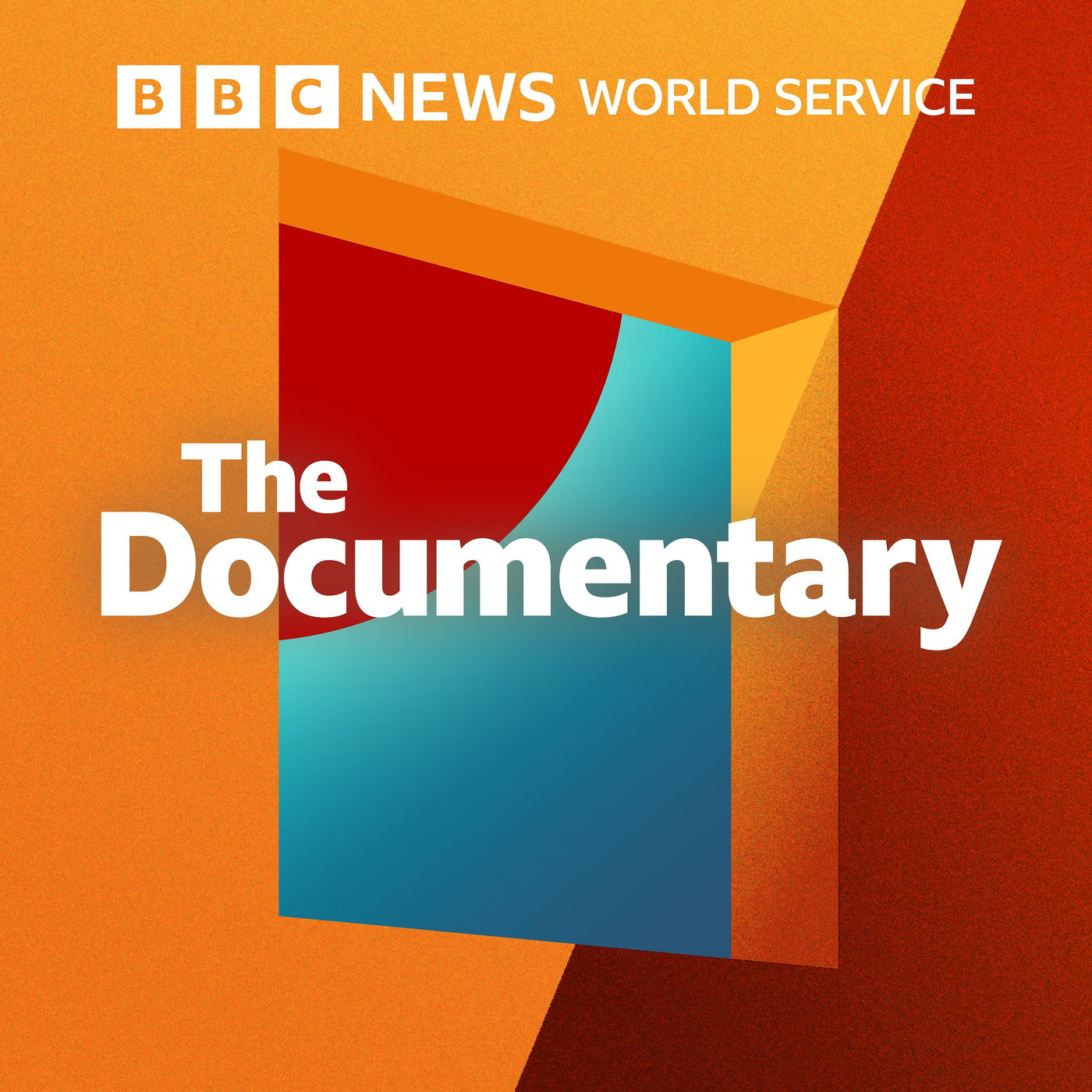
DocumentariesNew elementsWhat does it take to make something which has never existed on Earth before? The search for element 120 on the periodic table has begun at the Lawrence Berkeley National Laboratory in California. Cosmologist Andrew Pontzen, who is used to studying the processes of creation, visits the 88-inch Cyclotron facility at Berkeley, where the next new element may be created very soon. To uncover what motivates scientists to pursue something that is possibly only produced in the violent explosions of stars he speaks with the scientists trying it now, the scientists who last made an element at Berkeley 50 years ago, and...
2026-01-1831 min
The Documentary PodcastNew elementsWhat does it take to make something which has never existed on Earth before? The search for element 120 on the periodic table has begun at the Lawrence Berkeley National Laboratory in California. Cosmologist Andrew Pontzen, who is used to studying the processes of creation, visits the 88-inch Cyclotron facility at Berkeley, where the next new element may be created very soon. To uncover what motivates scientists to pursue something that is possibly only produced in the violent explosions of stars he speaks with the scientists trying it now, the scientists who last made an element at Berkeley 50 years ago...
2026-01-1826 min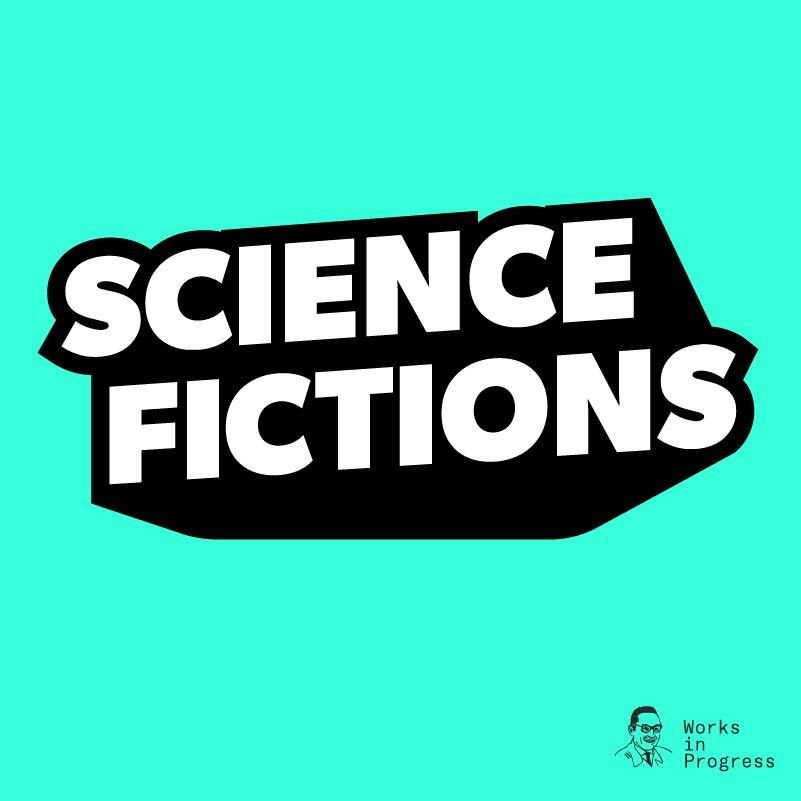
Science FictionsEpisode 83: Dark matter and dark energyWhere is most of the universe? And why don't we know yet? Yes—we’re talking about dark matter and dark energy, the mysterious stuff that’s predicted by physical theory, but which still remains elusive in experiments.After speaking to an actual physicist, Tom and Stuart attempt to explain what dark matter and dark energy are supposed to be, and what physicists would have to see in their experiments to know that they exist. They also come down with a serious case of physics envy.The Studies Show is sponsored by Works in Progress magazi...
2025-09-0956 min
Curious CasesInvisibility QuestHannah and Dara tackle a disarmingly simple question: is anything in the universe truly invisible? After ruling out mysterious Nordic spirits and ‘Dara’s ire’, our curious duo start to track down the invisible waves all around them. Including, it turns out, some which are emanating from their VERY OWN FACES! An infrared camera reveals Hannah’s nose as a particular hotspot.Turning their gaze to bigger things, they wonder: what does our own galaxy look like when viewed in this invisible spectrum? Infrared reveals vast loops and whorls of dust and gas - gigantic structures otherwise totally...
2025-04-2529 min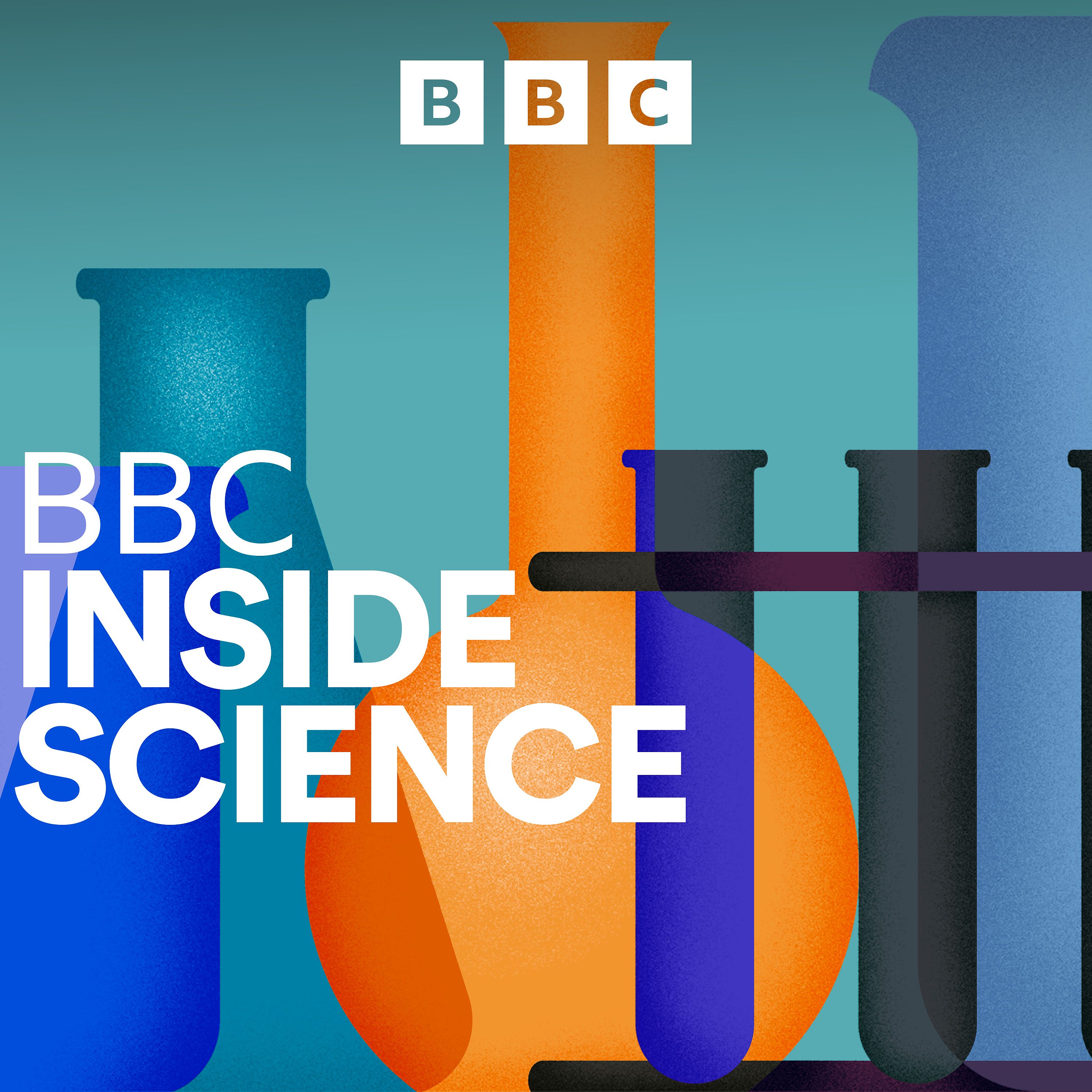
BBC Inside ScienceIs everything we know about the universe wrong?For the last week or so, the world of physics has had just one conversation.Have we found a new way of understanding the universe? And if so, what does this mean for our understanding of how we all came to exist – and even our fate? These big questions were prompted by new data from the Dark Energy Spectroscopic Instrument team at the Kitt Peak National Observatory in Arizona. To explain what was found, whether it’s right and just how excited we should be, we’re joined by astrophysics professor Catherine Heymans and cosmologist Andrew...
2025-04-2428 min
Into the Impossible With Brian KeatingIs the Universe a Simulation? Andrew PontzenPlease join my mailing list here 👉 https://briankeating.com/list to win a meteorite 💥Simulations today are powerful tools for exploring the mysteries of our universe, but how close can they come to replicating reality? Can we recreate everything through simulations, or are there limits we can’t overcome? And how do today’s powerful simulations shape our understanding of everything from galaxies to climate change?Here today, to answer all of these questions and more, is none other than Andrew Pontzen. Andrew is a cosmologist and professor known for his ex...
2024-11-171h 19
Wie is...?Wie is Elon Musk? - Afl 5. Musk de klokkenluiderHet is de grootste bedreiging voor de mensheid, volgens Elon Musk dan. Namelijk kunstmatige intelligentie. De ontwikkelingen volgen elkaar snel op en ook op dit vlak wil Musk zich laten gelden. Wat is het gevaar volgens Musk, en wat zegt dit over zijn mensbeeld? Daarvoor praten we met Hans Busstra, maker van de Tegenlicht-documentaire Technologie als Religie en journalist en Youtuber bij de Essentia Foundation. Tot slot nog twee boekentips: Wil jij ontsnappen aan de greep van de algoritmes? Luister Digitale gremlins van techfilosoof Rens van der Vorst. xAI wil de aard van het universum onderzoeken. In...
2024-11-1146 min
In Our TimeWormholesMelvyn Bragg and guests discuss the tantalising idea that there are shortcuts between distant galaxies, somewhere out there in the universe. The idea emerged in the context of Einstein's theories and the challenge has been not so much to prove their unlikely existence as to show why they ought to be impossible. The universe would have to folded back on itself in places, and there would have to be something to make the wormholes and then to keep them open. But is there anywhere in the vast universe like that? Could there be holes that we or more advanced...
2024-10-241h 00
In Our Time: ScienceWormholesMelvyn Bragg and guests discuss the tantalising idea that there are shortcuts between distant galaxies, somewhere out there in the universe. The idea emerged in the context of Einstein's theories and the challenge has been not so much to prove their unlikely existence as to show why they ought to be impossible. The universe would have to folded back on itself in places, and there would have to be something to make the wormholes and then to keep them open. But is there anywhere in the vast universe like that? Could there be holes that we or more advanced...
2024-10-241h 00
BBC Inside ScienceCERN’s Supercollider PlanCERN’s plans to build a bigger, faster particle collider, with a hefty 17 billion Euro price tag, are in question. Physicists Andrew Pontzen and Harry Cliff discuss if the new machine is really worth it. A place on the podium or disappointment in the Olympics can come down to the precise position of a foot or angle of the hips. Science reporter Ella Hubber visits the University of Bath to check out the motion capture tech that makes these measurements.
New research suggests our close cousins, the chimpanzees, chat just as fast as humans. Professor Cat Hobaiter fr...
2024-08-2228 min
BBC Inside ScienceHow do we solve antibiotic resistance?The looming danger of antibiotic resistance may have fallen out of the public consciousness but is still very much in the mind of those in public healthcare and research. As promising new research is published, the University of Birmingham’s Laura Piddock and GP Margaret McCartney get to the bottom of why antibiotic resistance is still so difficult to tackle. Marine biologist Helen Scales joins us in the studio to talk about her new book “What the Wild Sea Could Be” which uses changes in the Earth’s past to predict what we can expect to happen to our o...
2024-07-0428 min
CrowdScienceIs every atom unique?It’s hard to imagine something as mind-bogglingly small as an atom. But CrowdScience listener Alan has been attempting to do just that. All things in nature appear to be different and unique; like trees and snowflakes, could it be that no two atoms are ever the same?Alan isn’t the first person to wonder this. Philosopher and scientist Gottfried Leibnitz had a similar idea in the 17th century; in this episode, philosopher of physics Eleanor Knox helps us unpick the very idea of uniqueness. And with the help of physicist Andrew Pont...
2024-06-2132 min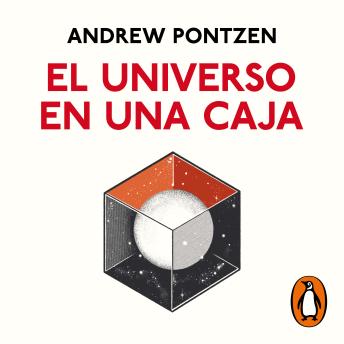
Get Lost in a World of Words, Without Ever Opening a Free Audiobook Thanks, Audiobookuniverso en una caja: Una nueva historia del cosmos - Andrew PontzenEscuche este audio libro completo gratis enhttps://hotaudiobook.com/freeTítulo: universo en una caja: Una nueva historia del cosmosAutor: Andrew PontzenNarrador: Carlos CalvoFormato: UnabridgedDuración: 9:15:18Idioma: EspañolFecha de publicación: 05-16-2024Editor: Penguin Random House Grupo EditorialCategorías: Science & Technology, Astronomy & PhysicsResumen:¿Cómo estudian los científicos el universo?
«Absorbente. Este libro es un testamento del increíble potencial de las simulaciones a la hora de revelar verdades sobre el mundo que nos rodea y nu...
2024-05-169h 15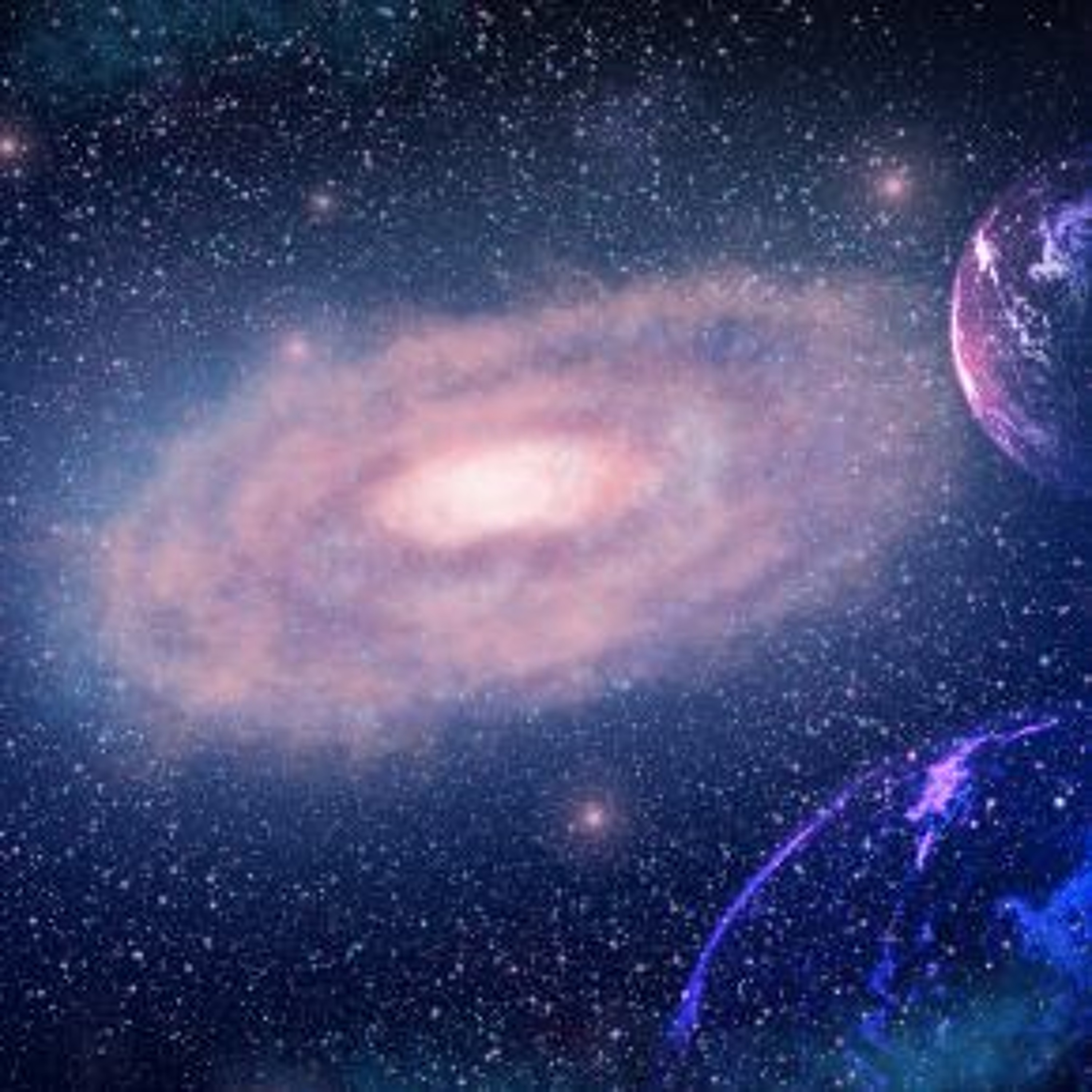
UCL MindsUniverses Multiverses And SimulationsAbout the Lecture:
A tapestry of cosmic events stretching over the past 13.8 billion years have shaped our existence in a vast universe. This lecture will explore how the computer simulations to study the cosmos have developed in tandem with more down-to-earth pursuits like weather forecasting. We will see how the resulting computer codes have unlocked our understanding of the universe, from galaxies and black holes to the essence of matter. And the lecture will conclude with a look at the multiverse and the contentious idea put forward by some philosophers and scientists that we may already be living inside a...
2024-03-271h 00
Wie is...?Wie is Musk? - Afl 5. Musk de klokkenluiderHet is de grootste bedreiging voor de mensheid, volgens Elon Musk dan. Namelijk kunstmatige intelligentie. De ontwikkelingen volgen elkaar snel op en ook op dit vlak wil Musk zich laten gelden. Wat is het gevaar volgens Musk, en wat zegt dit over zijn mensbeeld? Daarvoor praten we met Hans Busstra, maker van de Tegenlicht-documentaire Technologie als Religie en journalist en Youtuber bij de Essentia Foundation.Tot slot nog twee boekentips: Wil jij ontsnappen aan de greep van de algoritmes? Lees Digitale gremlins van techfilosoof Rens van der Vorst. xAI wil de aard van het universum onderzoeken...
2024-01-1846 min
The Supermassive PodcastDo We Live In A Multiverse?Izzie Clarke and Dr Becky Smethurst are rounding off 2023 with a biggie. Arguably the biggest of them all. This episode is ALL about the Multiverse. What is it? What does it mean? Does it even exist? A big thank you to Andrew Pontzen from UCL and author of "Universe in a Box" for explaining the basics, Katie Mack from The Perimeter Institute for going from physicist to film reviewer, and to listener Wendy Entwistle who suggested the Supermassive team cover this topic.The Supermassive Podcast is a Boffin Media production for the Royal Astronomical Society. The p...
2023-12-2248 min
Better KnownAndrew PontzenAndrew Pontzen discusses with Ivan six things which should be better known.
Andrew Pontzen is a cosmologist and a Professor at University College London. He is currently principal investigator on the ERC-funded GMGalaxies project, and co-director of UCL's Cosmoparticle Initiative. Previously he held a Royal Society University Research fellowship and, before that, junior fellowships in Oxford and Cambridge. His latest book is The Universe in a Box.
Simulations and the role they play in science and society https://original.newsbreak.com/@massachusetts-updates-1665615/3107758662878-decoding-the-universe-the-role-of-computer-simulations-in-cosmology
Beatrice Hill Tinsley https://www.nytimes.com/2018/07/18/obituaries/overlooked-beatrice-tinsley-astronomer.html
2023-08-2030 min
BBC Inside ScienceMapping the universeA rocket launch, super-massive black holes and ghost particles! This past week’s scientific findings are testament to how hard-at-work cosmologists and physicists have been seeking out the fundamental building blocks of our universe and the rules that govern it. Professor of Cosmology at UCL, Andrew Pontzen, joins Marnie Chesterton to discuss the lot of them. Euclid took to the stars on Saturday, carrying a wide-angle space telescope that promises the opportunity to create a far larger and accurate 3D map of the universe to anything ever seen before. Gravitational waves detected by the North American Nanohertz Ob...
2023-08-0335 min
DocumentallyBill Thompson at Thinking Digital 2023Audio recorded at the Thinking Digital conference 2023 for my newsletter http://www.documentally.net.
The supercomputing cosmologist that Bill refers to was Andrew Pontzen.
Thank you to Ian Forrester aka Cubic Garden for taking the photograph used.
2023-07-0707 min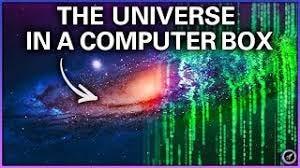
Talk CocktailAI May Tell Us More About the Cosmos Than Telescopes: A Conversation with Andrew PontzenUnleashing the power of AI and supercomputers, we're on the brink of a cosmic revelation. The creation of galaxies in code, a feat akin to the invention of the telescope, is revolutionizing our understanding of the universe. Renowned cosmologist Andrew Pontzen, harnessing the might of these computational behemoths, is leading us into a new era where virtual worlds mirror reality, offering unprecedented insights into our cosmos. His book, 'The Universe in a Box,' explores how these simulations are not just pushing the boundaries of cosmology, but also transforming diverse fields from finance to disease forecasting.
2023-06-2926 min
Talk CocktailAI May Tell Us More About the Cosmos Than Telescopes: A Conversation with Andrew Pontzen
Unleashing the power of AI and supercomputers, we're on the brink of a cosmic revelation. The creation of galaxies in code, a feat akin to the invention of the telescope, is revolutionizing our understanding of the universe.
Renowned cosmologist Andrew Pontzen, harnessing the might of these computational behemoths, is leading us into a new era where virtual worlds mirror reality, offering unprecedented insights into our cosmos. His book, 'The Universe in a Box,' explores how these simulations are not just pushing the boundaries of cosmology, but also transforming diverse fields from finance to disease forecasting.
My...
2023-06-2926 min
Science WeeklyEuclid: will the mission uncover the secrets of dark matter and dark energy?Ian Sample speaks to the cosmologist Dr Andrew Pontzen about the European Space Agency’s Euclid mission, which hopes to uncover more about two of the universe’s most baffling components: dark energy and dark matter. Pontzen explains what the probe will be looking for and how its findings will contribute to our understanding of the structure and evolution of the cosmos. Help support our independent journalism at theguardian.com/sciencepod
2023-06-2918 min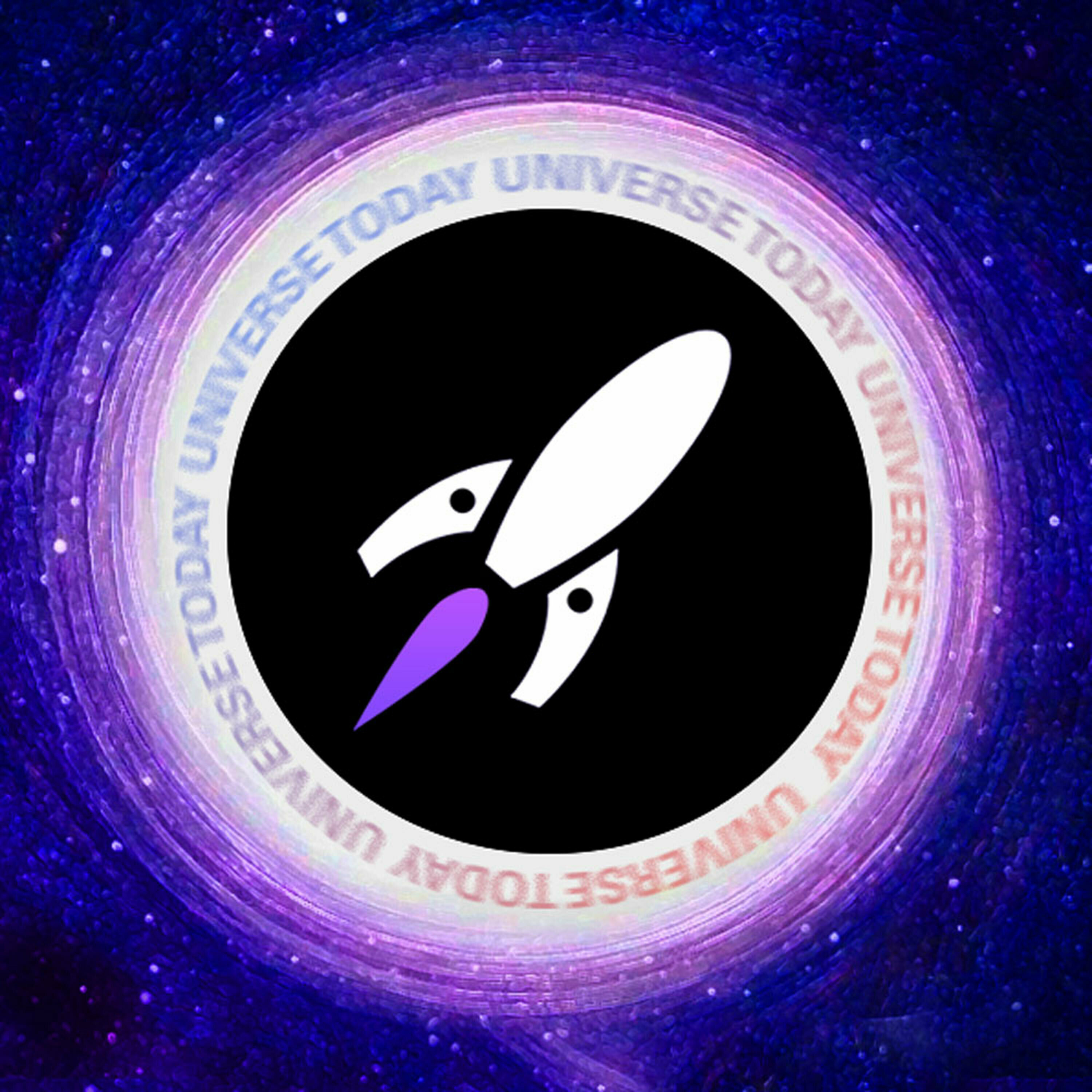
Universe Today Podcast[Interview] Simulating The Universe with SupercomputersSupercomputer simulations of the Universe are a huge part of modern astronomy. In this interview with Dr Andrew Pontzen we discuss, how exactly are these simulations done, what's the future of this industry, how it will shape the James Webb era and is it possible that we live in a simulation after all. 📖 Andrew's book "The Universe In a Box": https://www.penguinrandomhouse.com/books/669774/the-universe-in-a-box-by-andrew-pontzen/🦄 Support us on Patreon: https://patreon.com/universetoday📚 Suggest books in the book club:https://www.goodreads.com/group/show/1198440-universe-today-book-club00:00 Intro
2023-06-2200 min
Best of the SpectatorAndrew Pontzen: The Universe In A BoxSam Leith's guest in this week's Book Club podcast is the cosmologist Andrew Pontzen. His The Universe In A Box: A New Cosmic History describes how we have learned to simulate first the weather, and then the universe itself – and how we discovered that those simulations don't just mimic reality but allow us to learn new things about it. Dark matter, the Big Bang and the scientific importance of suboptimal pizza: it's all here.
Produced by Oscar Edmondson, Joe Bedell-Brill and Cindy Yu.
2023-06-2153 min
The Book ClubAndrew Pontzen: The Universe In A BoxMy guest in this week's Book Club podcast is the cosmologist Andrew Pontzen. His The Universe In A Box: A New Cosmic History describes how we have learned to simulate first the weather, and then the universe itself – and how we discovered that those simulations don't just mimic reality but allow us to learn new things about it. Dark matter, the Big Bang and the scientific importance of suboptimal pizza: it's all here.Produced by Oscar Edmondson, Joe Bedell-Brill and Cindy Yu.Become a Spectator subscriber today to access this podcast without adverts. Go to spectator.co.uk...
2023-06-2153 min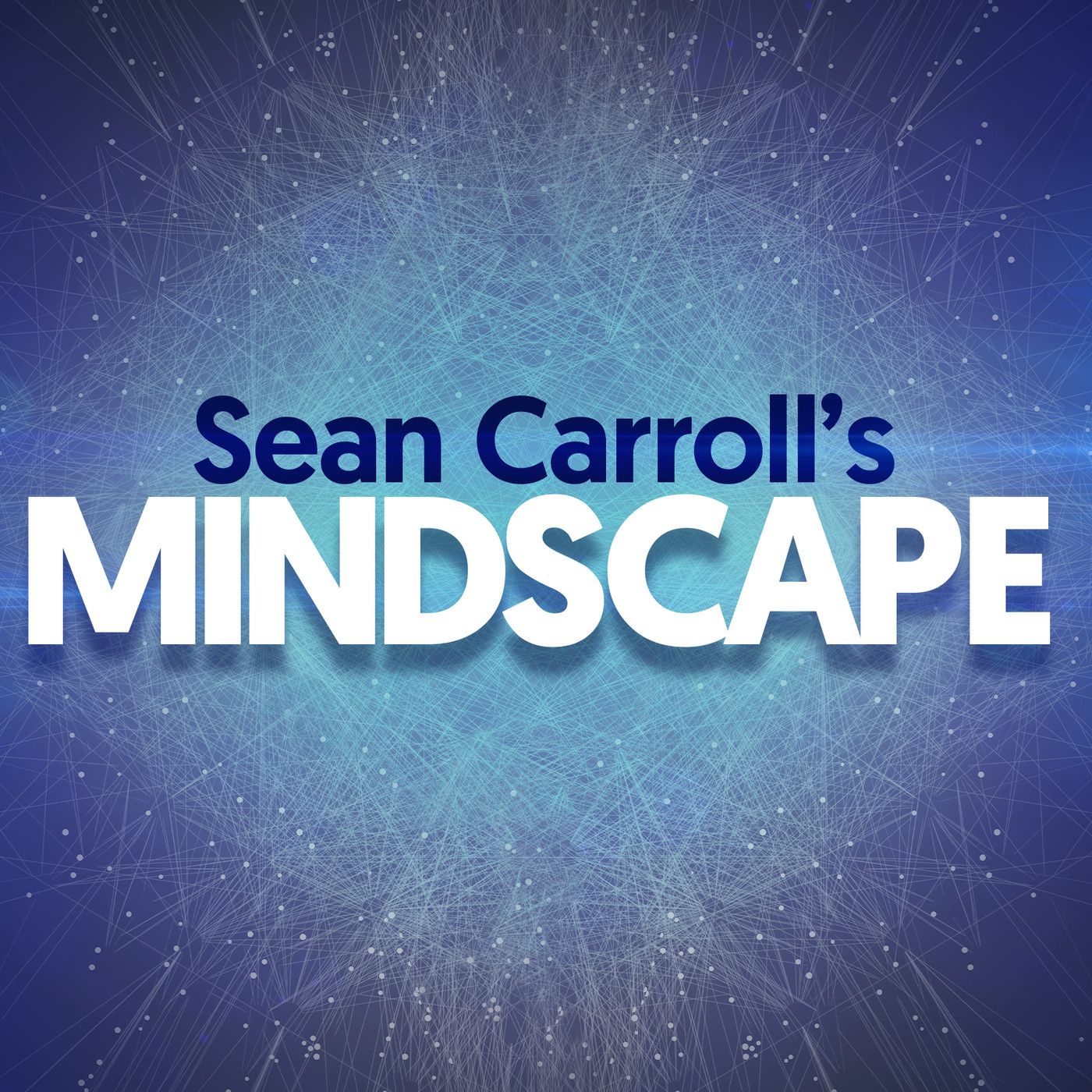
Sean Carroll's Mindscape240 | Andrew Pontzen on Simulations and the UniverseIt's somewhat amazing that cosmology, the study of the universe as a whole, can make any progress at all. But it has, especially so in recent decades. Partly that's because nature has been kind to us in some ways: the universe is quite a simple place on large scales and at early times. Another reason is a leap forward in the data we have collected, and in the growing use of a powerful tool: computer simulations. I talk with cosmologist Andrew Pontzen on what we know about the universe, and how simulations have helped us figure it out. We also...
2023-06-191h 26
Sean Carroll's Mindscape: Science, Society, Philosophy, Culture, Arts, and IdeasAndrew Pontzen on Simulations and the UniverseIt's somewhat amazing that cosmology, the study of the universe as a whole, can make any progress at all. But it has, especially so in recent decades. Partly that's because nature has been kind to us in some ways: the universe is quite a simple place on large scales and at early times. Another reason is a leap forward in the data we have collected, and in the growing use of a powerful tool: computer simulations. I talk with cosmologist Andrew Pontzen on what we know about the universe, and how simulations have helped us figure it out. We...
2023-06-191h 26
The Cosmic Companion - Astronomy, Space, Technology Advancing HumanityCoding the Universe w/ cosmologist Andrew Pontzen, author of The Universe in a BoxHow do we create computer models of the Universe, and how will artificial intelligence revolutionize astronomy? Talking with Andrew Pontzen, author of The Universe in a Box---This week on The Cosmic Companion, we explore the fascinating world of computer models of the universe! From humble beginnings to mind-boggling simulations, this is the history of how we unravel mysteries of the Cosmos using the power of computers.Astronomers and cosmologists seek to understand what happened billions of years ago, and what may happen billions of years in the future. They explore the...
2023-06-1727 min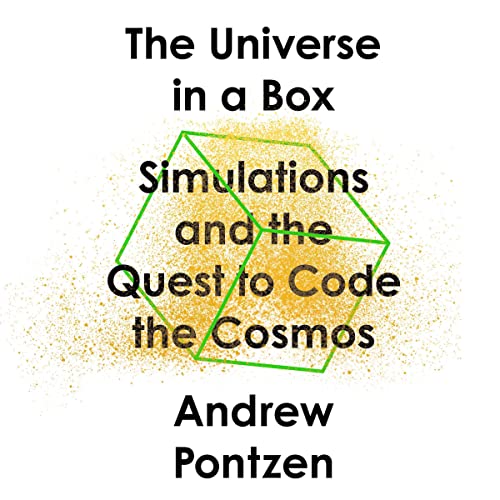
Step Inside An Mind-Blowing Full Audiobook And Elevate Your Mindset.The Universe in a Box by Andrew PontzenPlease visithttps://thebookvoice.com/podcasts/2/audible/187130to listen full audiobooks.
Title: The Universe in a Box
Author: Andrew Pontzen
Narrator: Andrew Pontzen
Format: mp3
Length: 8 hrs and 23 mins
Release date: 06-13-23
Ratings: 4.5 out of 5 stars, 24 ratings
Genres: Astronomy & Space Science
Publisher's Summary:
In The Universe in a Box, cosmologist Andrew Pontzen explains how physicists model the universe’s most exotic phenomena, from black holes and colliding galaxies to dark matter and quantum entanglement, enabling them to study the evolution of virtual worlds and to shed new light on our reality.
2023-06-138h 23
The Making of an AutocratIs there a multiverse?Interest in the multiverse theory, suggesting that our universe is just one of many, has spiked since the movie Everything Everywhere All At Once was released. The film follows Evelyn Wang on her journey to connect with versions of herself in parallel universes to stop the destruction of the multiverse. The multiverse idea has long been an inspiration for science fiction writers. But does it have any basis in science? And if so, is it a concept we could ever test experimentally? Featuring Andrew Pontzen, professor of Cosmology at University College London, Katie Mack, Hawking chair i...
2023-03-3041 min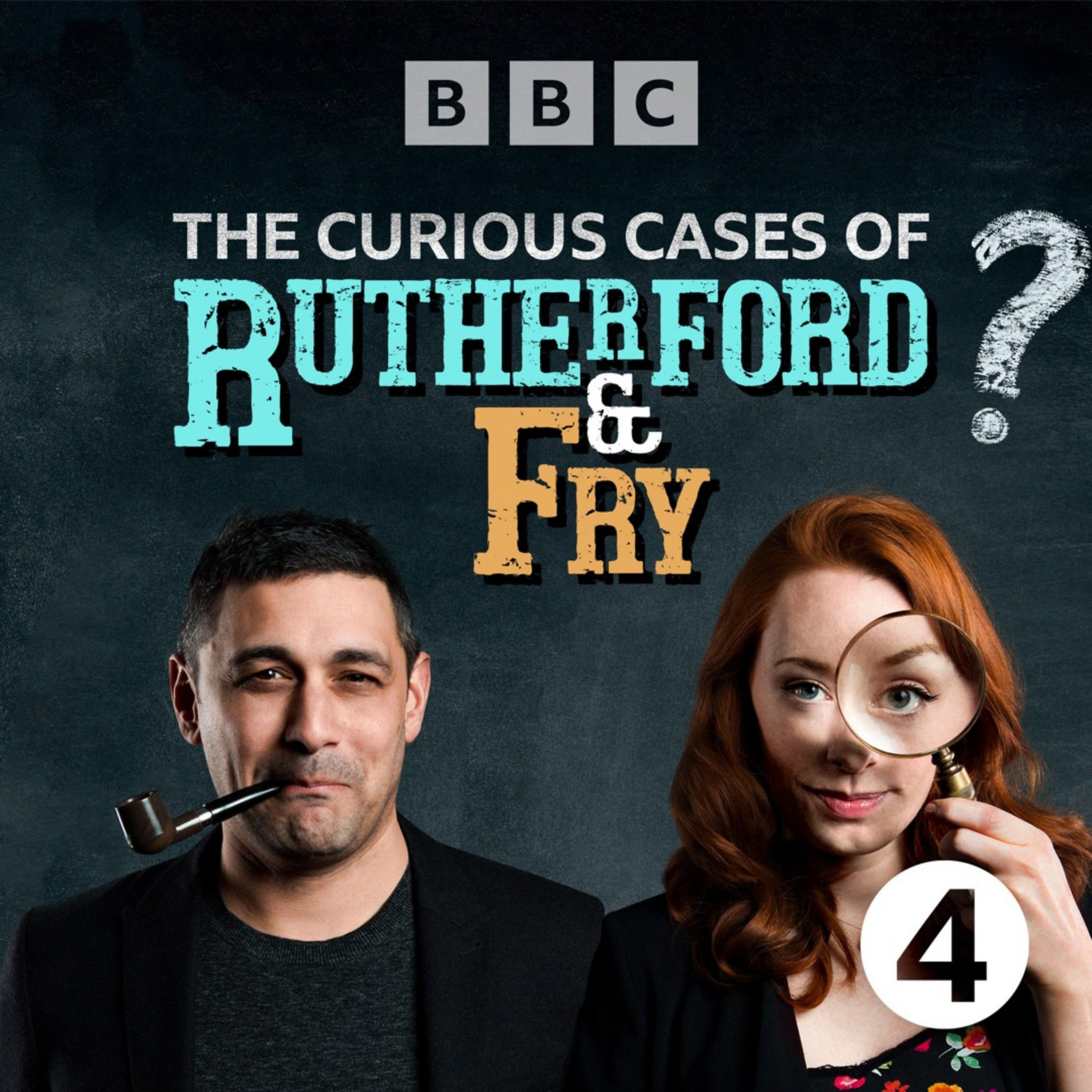
Curious CasesA Weighty Matter, Part 2The doctors continue their investigation into gravity, and answer Peter Fraser’s question: Is dark matter a proper theory or just a fudge to fit existing 'proper' theories to otherwise inexplicable observations?Whilst scientists are pretty convinced our understanding of gravity is largely correct, there are still some significant gaps. Namely, given the way galaxies are observed to behave, around 85% of the matter that they think should be in our universe is missing. So where – and, as importantly, what – is it? Cosmologist Andrew Pontzen introduces the evidence from our observations of the cosmic microwave background, light...
2021-02-0940 min
Curious CasesA Weighty Matter, Part 1The doctors investigate a millennia-old query, as listener Emma in New Zealand asks: ‘How does gravity pull us?’People have been thinking about how gravity works for a very long time. Way longer than when that particular apple almost certainly didn’t fall on the head of Isaac Newton. Cosmologist Andrew Pontzen begins guiding us through our journey by taking us back to the almost entirely incorrect writings of ancient Greeks.We then fast forward past Galileo and Newton, and throw in an extra dimension. Using an all-too-believable analogy where some merry cyclists sudden...
2021-02-0243 min
DiscoveryThe Space BurritoIs there a point in space where the Sun could heat a burrito perfectly? asks Will. The doctors tackle this and a plethora of other conundrums from the Curious Cases inbox.Featuring expert answers from astrophysicist Samaya Nissanke, cosmologist Andrew Pontzen, and cognitive neuroscientist Sophie Scott.Presenters: Hannah Fry & Adam Rutherford
Producer: Jen Whyntie
2020-12-0727 min
DiscoveryThe end of everythingEveryone knows about the Big Bang being the beginning of the universe and time - but when and how is it going to end? ask brothers Raffie and Xe from Rome. For this series, with lockdown learning in mind, Drs Rutherford and Fry are investigating scientific mysteries for students of all ages. The doctors sift science from philosophy to find out.Cosmologist Jo Dunkley studies the origins and evolution of the universe. She explains how astrophysical ideas and techniques have evolved to tell us what we now know about our galaxy and far beyond, from the elegant...
2020-11-2327 min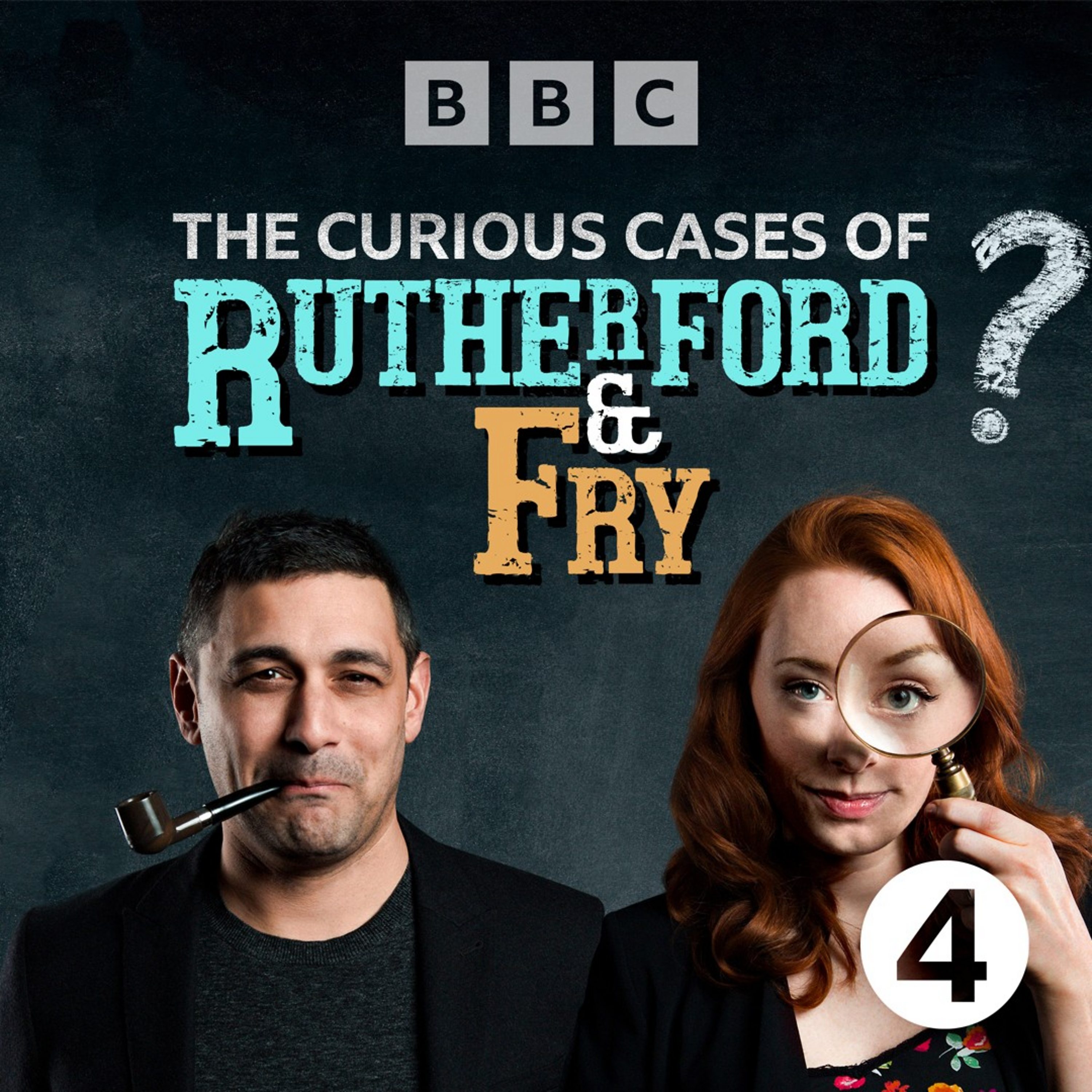
Curious CasesThe Space BurritoIs there a point in space where the Sun could heat a burrito perfectly? asks Will. The doctors tackle this and a plethora of other conundrums from the Curious Cases inbox.Featuring expert answers from: Astrophysicist Samaya Nissanke
Cosmologist Andrew Pontzen
Cognitive neuroscientist Sophie Scott Presenters: Hannah Fry & Adam RutherfordProducer: Jen WhyntieFirst broadcast on BBC Radio 4 in July 2020.
2020-07-1434 min
Curious CasesThe End of EverythingEveryone knows about the Big Bang being the beginning of the universe and time - but when and how is it going to end? ask brothers Raffie and Xe from Rome. For this series, with lockdown learning in mind, Drs Rutherford and Fry are investigating scientific mysteries for students of all ages. The doctors sift science from philosophy to find out.Cosmologist Jo Dunkley studies the origins and evolution of the universe. She explains how astrophysical ideas and techniques have evolved to tell us what we now know about our galaxy and far beyond, from...
2020-06-3044 min
Curious CasesThe Exotic Wormhole"What are wormholes and do they really exist?" asks Manlee-Fidel Spence, aged 12. In this exotic episode, the doctors investigate how wormholes would work. Cosmologist Andrew Pontzen explains why wormholes could allow you to travel through time as well as space. And physicist Jim AlKhalili outlines the infinite problems this could generate.When it comes to wormholes and time travel, many science fiction stories have married solid science and successful storytelling, as Jennifer Oullette describes, but others really have defied the laws of physics. Jim also reveals why some quantum physicists now think that wormholes could...
2020-03-0637 min
Curious CasesThe Golden Secret"How do you make gold?" asks curious listener, Paul Ruddick. Inspired by the promise of riches, Hannah and Adam embark on a mission to discover the origin of gold. It's a tale that takes them from the clandestine codes of Aristotle to the alchemy of Isaac Newton, alongside materials scientist Mark Miodownik.They boldly go into the cosmos with astronomers Lucie Green and Andrew Pontzen, to learn what happens in the most exotic areas of space. By the end one thing is for sure - you'll never look at your gold jewellery in quite the...
2020-01-3128 min
The Supermassive PodcastSeeing The Invisible UniverseFrom black holes to dark matter, this first episode of the Royal Astronomical Society's new podcast explores the odd things in space we can't see. Plus, hosts astrophysicist Dr Becky Smethurst and science journalist Izzie Clarke are trusted with a book from 1566 and Robert Massey, the Deputy Executive Director of the RAS, shares his top tips for stargazing at home. With special thanks to Dr Rebekah Higgitt from the University of Kent, Professor Hiranya Peiris and Professor Andrew Pontzen from University College London. And yes, we've had to change the name of our podcast. All shall...
2020-01-1740 min
Curious CasesThe Heart of the Antimatter"How do you make antimatter?' asks Scott Matheson, aged 21 from Utah.The team takes charge of this question with a spin through the history of antimatter. Adam talks to physicist Frank Close, author of 'Antimatter', about its origins in the equations of Dirac to its manufacture in the first particle accelerator, the Bevatron. Cosmologist Andrew Pontzen tells Hannah why physicists today are busy pondering the mystery of the missing antimatter. Anyone who discovers why the Universe is made of matter, rather than antimatter, is in line for the Nobel Prize.Plus, neuroscientist...
2019-11-1531 min
Scientifically...The Sound of SpaceThe previously silent world of outer space is changing. In this audio tour around the Universe, Dr Lucie Green explores the sounds of space.Some sounds have been recorded by microphones on-board interplanetary spacecraft. Others have been detected by telescopes and sped up until their frequency is tuned to our ears. The rest are sonified X-rays, space plasma or radio waves that reveal tantalising secrets about the universe that our eyes cannot see.Everyone can recall the sound of the singing comet - a symphony created using measurements from the Rosetta mission. But many other...
2019-11-1328 min
BBC Inside ScienceExtinction Rebellion, UK net zero emissions and climate change; Nobel PrizesExtinction Rebellion is in the news with its stated aim of civil disobedience and protest, and goal to compel governments around the world to act on the climate crisis. Meanwhile, the UK government this week announced that it was overruling its own Planning Inspectorate, by approving in principle new gas-fired turbines at the Drax power station in North Yorkshire. The Inspectors had advised that the new developments would undermine UK climate policies on carbon emissions. In the UK we are committed to reaching net zero carbon emissions by 2050, in order to comply with our ratification of the Paris agreement...
2019-10-1027 min
DiscoveryDoes infinity exist?“Is anything in the Universe truly infinite, or is infinity something that only exists in mathematics?” This question came from father and son duo from Edinburgh in Scotland, Tom and Sorely Watson. First, we investigate the concept of infinity in mathematics with a story of mathematics, music and murder from Steven Strogatz from the Cornell University.Did you know that there are some infinities that are bigger than others? We discuss the mind-bending nature of infinity with mathematician Eugenia Cheng, author of Beyond Infinity.Next we turn to physics to see if we can...
2019-06-1026 min
BBC Inside ScienceVisualising a black hole, Homo luzonensis, Two ways to overcome antimicrobial resistance"We have now seen the unseeable" according to scientists who are part of the Event Horizon Telescope group. The international team has released a picture of the first black hole. Data gathered from an array of over 8 radio telescopes has been crunched to create a picture of the super-hot plasma surrounding the black hole M87. It shows extremely excited photons on the brink of being swallowed up by the supermassive black hole, 500 million trillion km away. Marnie Chesterton, asks UCL cosmologist Andrew Pontzen what the glowing doughnut-shaped image can tell us about the laws of gravity and relativity.
2019-04-1138 min
CrowdScienceHow Much Energy Can I Burn by Thinking?Wouldn’t it be great if you could lose weight and stay fit just by exercising your brain? Trouble is everything takes so much effort - from burning off excess weight to powering our cars. But why?Presenter Marnie Chesterton rummages through the CrowdScience inbox to tackle all your energy-expending queries. Is the entire universe spinning? How much energy do we expend when sleeping? Can I think myself thinner? Scientists Helen Czerski, Andrew Pontzen and Andrea Sella join listeners from around the world to discover how effort and energy affect our lives.(Image: A young bo...
2018-12-2426 min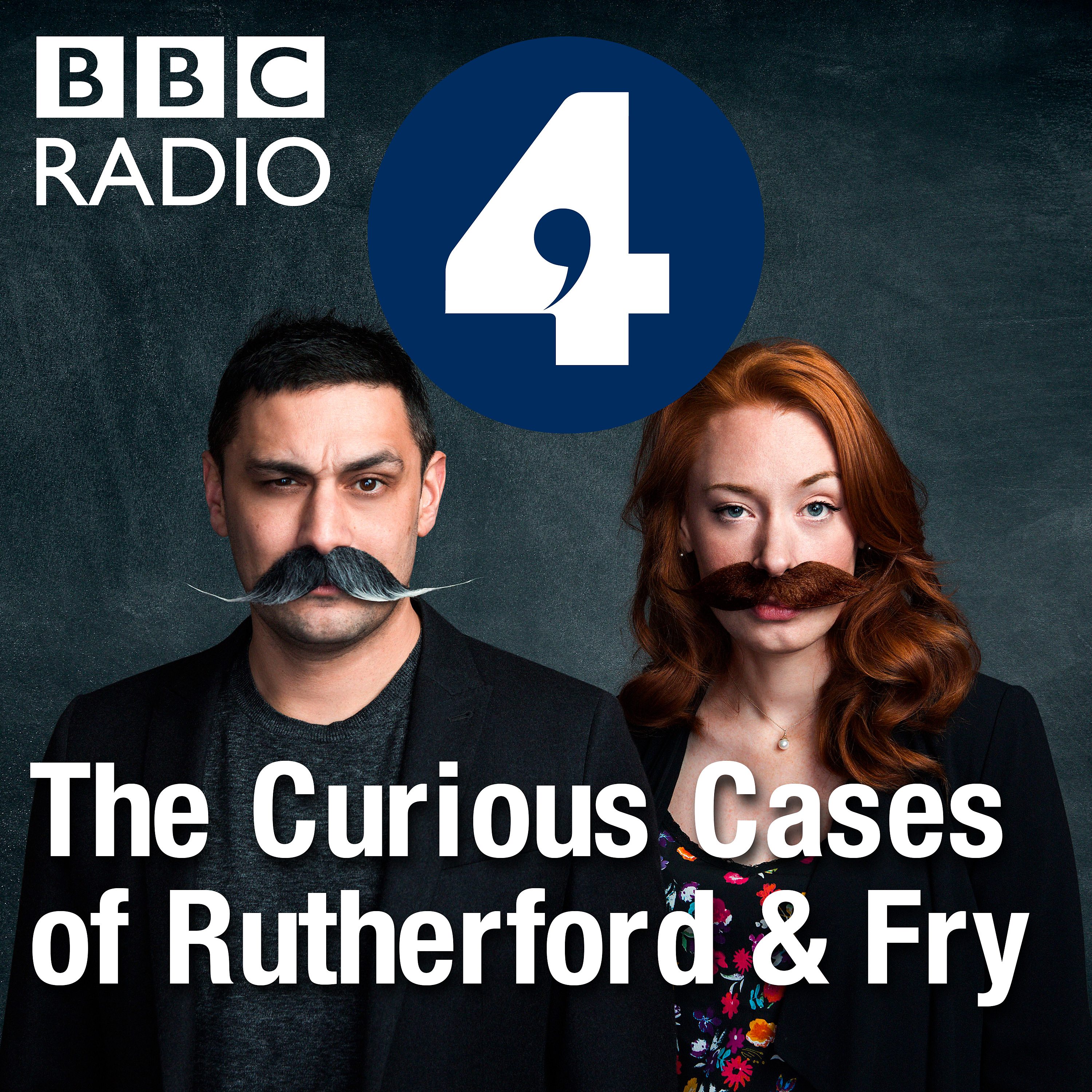
Curious CasesTwo Infinities and Beyond, Part 2In the second part of our eternal quest to investigate infinity, inspired by this question from father and son duo Sorley and Tom Watson from Edinburgh: “Is anything in the Universe truly infinite, or is infinity something that only exists in mathematics?” Hannah and Adam try and find something that is truly infinite, from the infinitely small particles that live in the subatomic world to the infinitely dense heart of a black hole. But how about the Universe itself? We find out how physicists go about measuring the shape of the Universe, with the help of an oran...
2018-12-0731 min
DiscoveryIronBeyond war and peace, Dr Andrew Pontzen explores how iron has shaped human biology and culture.From weapons to ploughshares, iron holds a key place as the element for the tools of the rise and destruction of human civilisations. As a grand scale shaper of our towns and ciities and our culture it is unmatched. And yet it also has a major role to play in living cells.
Andrew Pontzen, Reader in Cosmology at University College London. explores iron's sometimes ambivalent history and also delves deep inside ourselves to understand how iron is key to keeping us...
2018-09-1026 min
DiscoveryCan Anything Travel Faster Than Light?Two astronomical questions today sent in to curiouscases@bbc.co.uk for Drs Hannah Fry and Adam Rutherford to answer.The Cosmic Speed Limit
"We often read that the fastest thing in the Universe is the speed of light. Why do we have this limitation and can anything possibly be faster?" asks Ali Alshareef from Qatif from Saudia Arabia. The team grapples with Einstein's Special Theory of Relativity, with help from cosmologist Andrew Pontzen and a British train, travelling somewhat slower than the speed of light. Plus physicist and presenter Jim Al-Khalili describes how he nearly lost...
2018-05-2826 min
Curious CasesThe Cosmic Egg"How do we measure the age of the Universe?" asks Simon Whitehead.A hundred years ago this wouldn't even have been considered a valid question, because we didn't think the Universe had a beginning at all. Even Einstein thought that space was eternal and unchanging.This is the tale of how we discovered that the Universe had a beginning, and why calculating its age has been one of the greatest challenges in modern astronomy. We also uncover the mysterious dark energy that pervades the cosmos and discover why it's been putting a scientific...
2018-03-0230 min
Curious CasesThe Cosmic Speed Limit"We often read that the fastest thing in the Universe is the speed of light. Why do we have this limitation and can anything possibly be faster?" Ali Alshareef from Qatif in Saudia Arabia emailed curiouscases@bbc.co.uk with this puzzling problem.The team grapples with Einstein's Special Theory of Relativity, with help from cosmologist Andrew Pontzen and a British train, travelling somewhat slower than the speed of light.Plus physicist and presenter Jim Al-Khalili describes how he nearly lost his boxer shorts in a daring bet concerning the speed of subatomic particles.
2017-12-2922 min
DiscoveryWhat would happen if you fell into a black hole?Two deadly cases today sent in by listeners to curiouscases@bbc.co.ukThe Dark Star
"What's inside a black hole and could we fly a spaceship inside?" asks Jorge Luis Alvarez from Mexico City.Astrophysicist Sheila Rowan explains how we know invisible black holes actually exist. Plus cosmologist Andrew Pontzen is on hand to help cook one up.But which of our intrepid doctors will volunteer to fly into the heart of a black hole?Kate Bush’s Sonic Weapon
"It started while listening to the excellent Experiment IV by Ka...
2017-11-2126 min
DiscoveryWhat will happen when the Earth’s poles swap?The Polar Opposite
No one knows why the Earth's magnetic North and South poles swap. But polar reversals have happened hundreds of times over the history of the Earth.
John Turk emailed curiouscases@bbc.co.uk to ask, “when is the next pole swap due and what will happen to us?”
Featuring Prof Lucie Green from Mullard Space Science Laboratory and Dr Phil Livermore from the University of Leeds.
Plus, astronaut Terry Virts, author of The View from Above, describes his experiences of a strange magnetic glitch in the earth's magnetic field, known as The Bermuda Triangle of Space.
2017-11-2026 min
BBC Inside ScienceBoy gets New Skin, The York Gospels, Stephen Hawking's ThesisResearchers in Italy and Germany have saved the life of a boy with a life threatening genetic skin disease, using a combination of stem cell and gene therapy. 7 year old Hassan had lost 60% of his protective epidermis because of the condition, junctional epidermolysis bullosa. The severe blistering and consequent bacterial infections put his life in imminent danger. In a final attempt to save him, the scientists took a small area of unblistered epidermis from his body, separated the constituent skin cells and then engineered them with a normal version of the gene that was malfunctioning in Hassan's body. Sheets...
2017-11-0932 min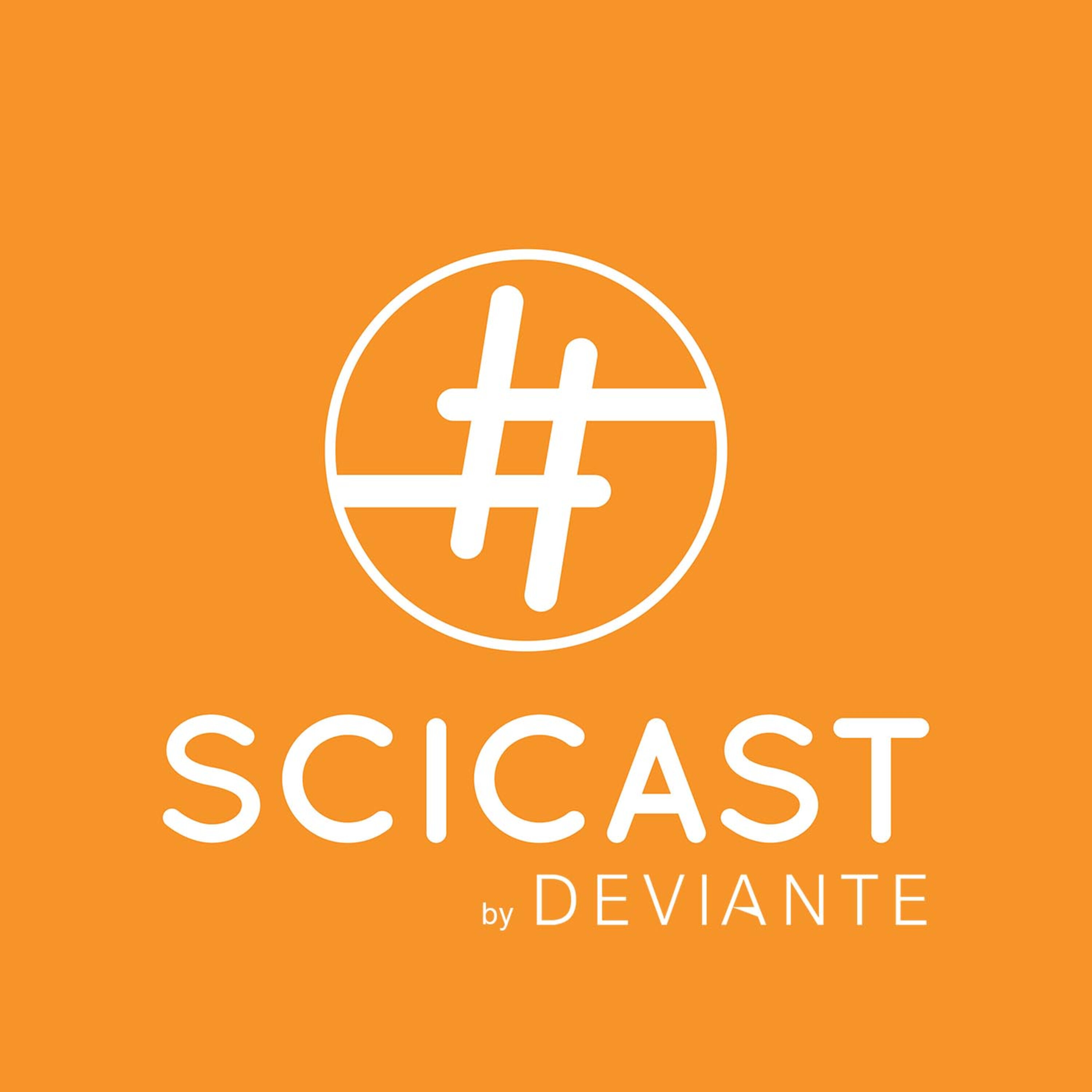
ScicastSciCast #218: RelatividadePreparem seus miolos! Nosso time de física voltou! E com um tema não mais simples que os outros, porém sempre abordado com muita didática, exemplos e aprofundamento! Veja a beleza e genialidade desse mundo relativístico e se encante com a natureza. *Este episódio, assim como tantos outros projetos vindouros, só foi possível por conta do Patronato do SciCast. Se você quiser mais episódios assim, contribua conosco!* Arte da Capa: Publicidade: Redes Sociais: Twitter, Facebook, Instagram Expediente:...
2017-09-291h 48
Curious CasesThe Dark Star"What's inside a black hole and could we fly a spaceship inside?" asks Jorge Luis Alvarez from Mexico City.Some interstellar fieldwork is on the agenda in today's Curious Cases. Astrophysicist Sheila Rowan explains how we know invisible black holes actually exist. And cosmologist Andrew Pontzen is on hand to help cook one up.But which of our intrepid doctors will volunteer to fly into the heart of a black hole?You can send your Curious Cases for the team to investigate to: curiouscases@bbc.co.ukPresenters: Hannah Fry, Adam...
2017-06-0223 min
The Naked Scientists PodcastDo Those Pollution Masks Really Work?The Naked Scientists are joined by cosmologist Andrew Pontzen, biologist Sarah Shailes, neuroscientist Philipe Bujold and biochemist Sarah Madden to pit their wits against your science questions. This week, find out how venus fly traps work, whether psychologists can read your mind and why there is so much variation in herbivore poo. Like this podcast? Please help us by supporting the Naked Scientists
2017-04-0455 min
The Naked Scientists PodcastDo Those Pollution Masks Really Work?The Naked Scientists are joined by cosmologist Andrew Pontzen, biologist Sarah Shailes, neuroscientist Philipe Bujold and biochemist Sarah Madden to pit their wits against your science questions. This week, find out how venus fly traps work, whether psychologists can read your mind and why there is so much variation in herbivore poo. Like this podcast? Please help us by supporting the Naked Scientists
2017-04-0457 minlol lpsDo air pollution masks actually work?The Naked Scientists are joined by cosmologist Andrew Pontzen, biologist Sarah Shailes, neuroscientist Philipe Bujold and biochemist Sarah Madden to pit their wits against your science questions. This week, find out how venus fly traps work, whether psychologists can read your mind and why there is so much variation in herbivore poo.
2017-04-0255 minThe Naked Scientists PodcastDo air pollution masks actually work?The Naked Scientists are joined by cosmologist Andrew Pontzen, biologist Sarah Shailes, neuroscientist Philipe Bujold and biochemist Sarah Madden to pit their wits against your science questions. This week, find out how venus fly traps work, whether psychologists can read your mind and why there is so much variation in herbivore poo.
2017-04-0255 min
Curious CasesThe World That Turns"Why does the Earth spin?" asks Joe Wills from Accra in Ghana. Hannah quizzes cosmologist Andrew Pontzen about the birth of the Solar System and why everything in space seems to spin. Is there anything in the Universe that doesn't revolve?BBC weatherman John Hammond explain to Adam how the rotation of the Earth creates our weather systems and the strange things that would happen if we spun the opposite way.Send your Curious Cases for consideration to: curiouscases@bbc.co.ukPresenters: Hannah Fry, Adam Rutherford
Producer: Michelle Martin.
2017-03-1015 min
DiscoveryDoes nothing exist?"Is there any such thing as nothing?" This question from Bill Keck sparked a lot of head scratching. Dr Adam Rutherford and Dr Hannah Fry first consider the philosophy and physics of nothing. As Prof Frank Close, author of Nothing: A Very Short Introduction explains, nothing has intrigued great thinkers for thousands of years, from the Ancient Greeks to today's particle physicists. Otto Von Geuricke, the Mayor of Magdeburg in Germany, invented the artificial vacuum pump in the 17th Century and presented spectacular displays to demonstrate the awesome power of nothing. Cosmologist Andrew...
2017-01-2327 min
BBC Inside ScienceListeners' QuestionsAdam Rutherford puts listeners' science questions to his team of experts: physicist Helen Czerski, cosmologist Andrew Pontzen and biologist Yan Wong. Queries include gravity on sci-fi space ships, how animals would evolve on the low gravitational field of the Moon, gravitational waves, mimicry in parrots, sea level rise, the accelerating universe, dinosaur intelligence, the Higgs field and concerns about oxygen levels in the atmosphere.Further questions are answered in the podcast version of the show. They cover Antarctic dinosaurs, reducing CO2 levels in the atmosphere by trapping it as limestone, and Neanderthal DNA.
2016-12-2944 min
The Naked Scientists PodcastWhat's the Healthiest Way to Eat an Entire Cake?Chris is joined by Giles Yeo, Roger Buckley, Andrew Pontzen and Kerstin Goepfrich, and they enjoy a mince pie or two while answering listener questions, including: why isn't love blinding; are glasses or contacts better for your eyes and what would happen if you brought a thimble of neutron star to earth? Plus, the team discuss the supposed benefits of the Mediterranean diet and debate the worst science movie mistakes.
2016-12-1356 minlol lpsWhat's the Healthiest Way to Eat an Entire Cake?Chris is joined by Giles Yeo, Roger Buckley, Andrew Pontzen and Kerstin Goepfrich, and they enjoy a mince pie or two while answering listener questions, including: why isn't love blinding; are glasses or contacts better for your eyes and what would happen if you brought a thimble of neutron star to earth? Plus, the team discuss the supposed benefits of the Mediterranean diet and debate the worst science movie mistakes.
2016-12-1357 min
The Naked Scientists PodcastWhat's the Healthiest Way to Eat an Entire Cake?Chris is joined by Giles Yeo, Roger Buckley, Andrew Pontzen and Kerstin Goepfrich, and they enjoy a mince pie or two while answering listener questions, including: why isn't love blinding; are glasses or contacts better for your eyes and what would happen if you brought a thimble of neutron star to earth? Plus, the team discuss the supposed benefits of the Mediterranean diet and debate the worst science movie mistakes. Like this podcast? Please help us by supporting the Naked Scientists
2016-12-1356 min
The Naked Scientists PodcastWhat's the Healthiest Way to Eat an Entire Cake?Chris is joined by Giles Yeo, Roger Buckley, Andrew Pontzen and Kerstin Goepfrich, and they enjoy a mince pie or two while answering listener questions, including: why isn't love blinding; are glasses or contacts better for your eyes and what would happen if you brought a thimble of neutron star to earth? Plus, the team discuss the supposed benefits of the Mediterranean diet and debate the worst science movie mistakes. Like this podcast? Please help us by supporting the Naked Scientists
2016-12-1359 min
CrowdScienceThe Fourth DimensionHow would a fourth dimensional being appear to humans?"It would look just weird" is one way to answer the question 'How would a fourth dimensional being appear to humans?' But it's more complicated than that - theoretical cosmologist Andrew Pontzen describes how objects are viewed from one dimension to another, and how it might affect parking spaces. Also on the programme: our panel of experts discuss bubble experiments, a theory that the Black Death was a virus, space elevators, algae as a biomass fuel, what affects the speed of digestion in our gut...
2016-12-1031 min
Curious CasesThe Hunt for Nothing, Part 1"Is there any such thing as nothing?" This question from Bill Keck sparked so much head scratching that we have devoted two episodes to this curious quandary.In the first programme, the team considers the philosophy and physics of nothing. As Prof Frank Close, author of "Nothing: A Very Short Introduction" explains, nothing has intrigued great thinkers for thousands of years, from the Ancient Greeks to today's particle physicists.Otto Von Geuricke, the Mayor of Magdeburg in Germany, invented the artificial vacuum pump in the 17th century and presented spectacular displays to demonstrate the awesome...
2016-12-0214 min
DiscoveryCould we send our litter into space?Two spacey cases today for doctors Rutherford and Fry to investigate, both sent in to BBC Future via Facebook.The Stellar Dustbin
'Can we shoot garbage into the sun?' asks Elisabeth Hill. The doctors embark on an astronomical thought experiment to see how much it would cost to throw Hannah's daily rubbish into our stellar dustbin. From space elevators to solar sails, they explore the various options that could be used to send litter to the Sun. Featuring space scientist Lucie Green and astrophysicist Andrew Pontzen.A Study in Spheres
Another stellar question comes...
2016-09-1927 min
BBC Inside ScienceGravitational Waves, UK Spaceport, Big Brains and Extinction Risk, Conservation in Papua New GuineaGravitational waves were announced last week, in what may be the science discovery of the decade. The Ligo detector, the most sensitive instrument on the surface of the planet, detected the ripples given off by the collision of two black holes. Adam Rutherford puts a selection of listener questions to UCL cosmologist Dr Andrew Pontzen.In March 2015, Campbeltown, Glasgow Prestwick, Stornoway, Newquay, Llanbedr and Leuchars were shortlisted by the government as possible sites for a "cosmodrome" or spaceport. With the UK space industry worth an estimated £40 billion by 2030, various stakeholders met for the UK spaceport conference at t...
2016-02-1827 min
Curious CasesThe Stellar DustbinAn unusual case today for science sleuths Hannah Fry and Adam Rutherford sent by Elisabeth Hill:'Can we shoot garbage into the sun?'The duo embark on an astronomical thought experiment to see how much it would cost to throw Hannah's daily rubbish into our stellar dustbin. From space elevators to solar sails, they explore the various options that could be used to send litter to the Sun. Featuring space scientist Lucie Green and astrophysicist Andrew Pontzen.If you have any everyday mysteries for the team to investigate using the...
2016-02-1813 min
BBC Inside ScienceGravitational Waves SpecialThe universe is silent no longer - physicists at the LIGO observatory have detected gravitational waves.LIGO, the Laser Interferometer Gravitational-wave Observatory, with its giant laser beam arms totalling 5 miles across the remote Hanford desert, is the largest lab on the surface of the planet. It was constructed in the Columbia Basin region of south-eastern Washington specifically to detect gravitational waves -- ripples in the fabric of space-time. First predicted a century ago by Einstein in his theory of general relativity, gravitational waves are produced by exotic cosmic events, such as when 2 black holes collide...
2016-02-1127 min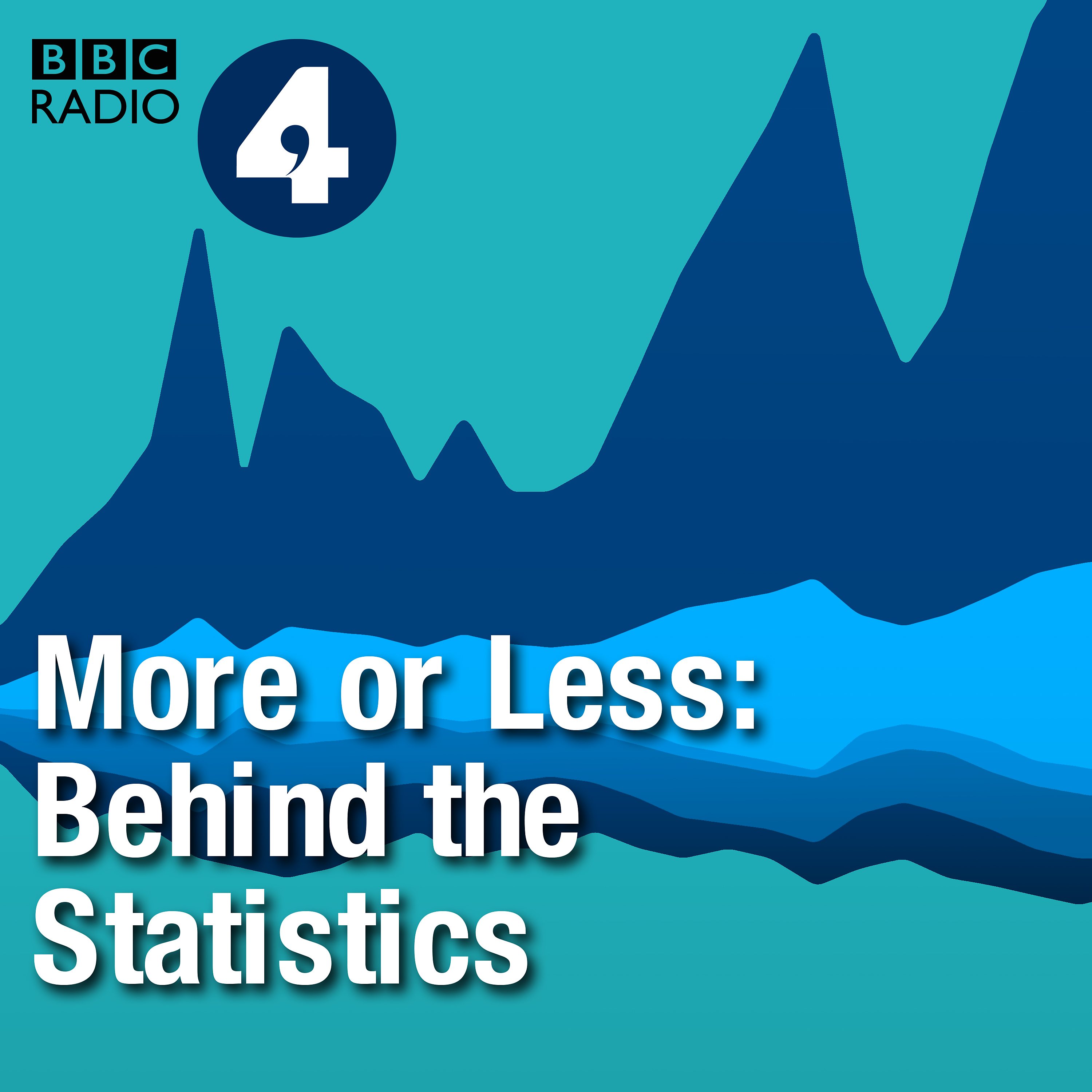
More or LessWeekend Stroke DeathsHealth Secretary Jeremy Hunt said this week that if you have a stroke at the weekends, you're 20% more likely to die. But is that true? We look at the evidence.Are you more likely to win prizes with newer Premium Bonds? We ask Radio 4’s Money Box presenter Paul Lewis if there is any truth in this.A few weeks ago many newspapers were reporting that alcohol was the cause of 70% of Accident and Emergency attendances over the weekends. Did the newspapers misunderstand the research?Why was the polling in the run up to...
2016-01-1527 min
More or LessWSMoreOrLess: Numbers of the Year 2015 Part 2How healthy is the Nigerian economy and how many possible tweets are there? Tim Harford looks back over some of the numbers that made the news in 2015.
Guests include:
Peter Cunliffe-Jones from Africa Check, Professor John Allen Paulos and Dr Andrew Pontzen
2016-01-0409 min
BBC Inside ScienceAncient farmers' genomes, Alice at Cern, Astrophysics questionsAncient farmers' genomes
New research looking at the DNA of people who lived in Europe as early as 8500 years ago shows signs of evolution, of natural selection, and of how farming has changed Europe in the last few millennia. The huge sample of 230 ancient individuals includes 26 Neolithic people from Anatolia thought to be the very first farmers.Cern's ALICE Experiment
Adam visits CERN in Geneva, to see ALICE (A Large Ion Collision Experiment). ALICE is designed to investigate one of the four fundamental forces in the Universe. The strong nuclear force is the most powerful, but only...
2015-11-2636 min
BBC Inside ScienceListeners' Science QuestionsAdam Rutherford and panellists Helen Czerski, Andrew Pontzen and Nick Crumpton answer listeners' science questions: What's the best way to become fossilised when you die? What are the most genetically different animals than can breed, either in the wild or in captivity? Why are there no animals with green fur? If one of the fundamental constants, like the speed of light, was 50% faster how would it affect our universe and would the universe even exist? Can we infer where the edge of our expanding universe is from its age - is that even a sensible question? Would you experience...
2015-09-2427 min
DiscoverySounds Of Space: Deep SpaceA sonic tour of the universe, with solar scientist, Dr Lucie Green. In the previous episode, we listened in to the sounds of the Solar System. This week in Discovery, we travel further out into the cosmos to bring you more Sounds of Space.Some are recorded sound, others are data – like X-rays or radio waves - that have been sonified. All of them have inspired scientists and artists to help us understand our universe.Joining Lucie Green on this sonic journey through space are:- Prof Tim O'Brien (Associate Director of...
2015-07-0626 min
DiscoverySounds of Space: The Solar SystemThe previously silent world of outer space is getting noisier. In this audio tour of the Solar System, Dr Lucie Green listens in to the Sounds of Space. You may have heard the famous ‘singing comet’ – the soundscape created using measurements taken by the Rosetta spacecraft. Now, we bring you more sounds that have come from our exploration of the cosmos.Some have been recorded by microphones on-board interplanetary spacecraft. Others have been sonified from space data, from lightning on Jupiter to vibrations inside the Sun. All of them reveal tantalising secrets that have inspired scientists, artists and mu...
2015-06-2926 min
BBC Inside ScienceListeners' Science QuestionsAdam Rutherford and guests oceanographer Dr Helen Czerski, cosmologist Dr Andrew Pontzen and zoologist Dr Tim Cockerill answer the listeners' science questions.Producer: Adrian Washbourne.
2015-01-0127 min
More or LessWS MoreOrLess: How do we calculate the distance to the sun?Two young listeners emailed the programme to ask how we calculate the distance to the sun. We decided to invite them and their parents to More or Less towers where Andrew Pontzen, an astrophysicist at University College London was on hand to explain the answer.
A BBC nature documentary stated that there are 14,000 ants to every person on earth, and that were we to weigh all of these ants they would weigh the same as all the people. Can this be true? Tim Harford and Hannah Moore investigate with the help of Francis Ratnieks, professor of apiculture at the...
2014-09-2909 min
BBC Inside ScienceLongitude Prize Winner; Solar cells; New species; Fiji fisherwomen; Physics questionsLongitude Prize 2014 Winning Challenge
Antibiotics resistance has been selected as the focus for the £10m prize. The World Health Organization (WHO) has warned of a "post-antibiotic era" where key drugs no longer work and people die from previously treatable infections. The next step in the challenge is to tackle this resistance, by developing a simple, cheap, quick test that allows you to tell whether an infection is bacterial or not. This will conserve the 50% of antibiotics that are currently given in situations where they have no effect.Solar Cells
A popular form of photovoltaic, or solar, cells i...
2014-06-2628 min
The Infinite Monkey CageScience v ArtBrian Cox and Robin Ince transport the cage of infinite proportions, to the slightly more confined space of the Latitude Comedy Arena. They will be joined on stage by a panel of guests, including Al Murray, for a witty, irreverent and unashamedly rational look at the world according to science. Given Latitude's artistic, musical and literary credentials, they'll be taking a huge risk by staging the ultimate show down, as they pitch Art against Science and ask which has more to offer and whether the two cultures might ever make a happy union. To help them battle it out...
2012-07-2327 min
Naked Astronomy, from the Naked ScientistsAstronomy at the Cambridge Science FestivalIn this special edition of the Naked Astronomy podcast we look at the astronomical events held at the Cambridge Science Festival. We'll hear from Dr Dan Stark about exploring the early Universe, find out what tooth x-rays and telescopes have to do with the man who coined the term "Big Bang" and ask if our Universe is but one of many... Plus, we catch up with Carolin Crawford, Andrew Pontzen and Dominic Ford to find out what they've been doing this month to bring space science to the wider public. Like this podcast? Please help us by supporting the Naked...
2011-03-2551 min
The Naked Scientists PodcastLaunching Naked AstronomyThrusting space science into the audio dimension, this week the Naked Scientists unveil a new series for 2010 - Naked Astronomy. Hosted by Ben Valsler together with Cambridge space scientists Carolin Crawford, Andrew Pontzen, Dominic Ford and a host of other cosmologically-gifted contributors, this new monthly programme brings the Universe to your ears. Further episodes of the show are available at nakedscientists.com/astronomy
2010-01-0552 minlol lpsLaunching Naked AstronomyThrusting space science into the audio dimension, this week the Naked Scientists unveil a new series for 2010 - Naked Astronomy. Hosted by Ben Valsler together with Cambridge space scientists Carolin Crawford, Andrew Pontzen, Dominic Ford and a host of other cosmologically-gifted contributors, this new monthly programme brings the Universe to your ears. Further episodes of the show are available at nakedscientists.com/astronomy
2010-01-0552 min
The Naked Scientists PodcastLaunching Naked AstronomyThrusting space science into the audio dimension, this week the Naked Scientists unveil a new series for 2010 - Naked Astronomy. Hosted by Ben Valsler together with Cambridge space scientists Carolin Crawford, Andrew Pontzen, Dominic Ford and a host of other cosmologically-gifted contributors, this new monthly programme brings the Universe to your ears. Further episodes of the show are available at nakedscientists.com/astronomy Like this podcast? Please help us by supporting the Naked Scientists
2010-01-0553 min